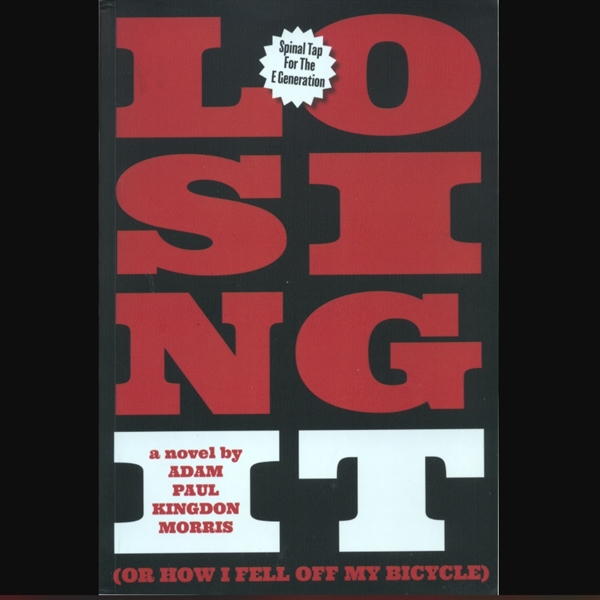
Kingdon Morris, Adam Paul
Losing It (or How I Fell Off My Bicycle)
340 pages, softcover, A5 sized. Adam Morris spent more than twenty years at the coal face of the music industry. In 1979, he co-founded the DIY label Malicious Damage Records, releasing post-punk classics by Killing Joke as well as the highly rated John Peel favourite, 'Agent Orange' by Ski Patrol. He worked for two years as an unpaid tour manager for Killing Joke, an experience that later led him to tour manage the reggae legend Lee "Scratch" Perry, who paid him. He moved from the label into distribution, working in imports and exports where he bought and sold thousands of records from labels like Beggar's Banquet, 4AD and Alternative Tentacles (Dead Kennedys). He distributed On-U Sounds for Adrian Sherwood, called at Dr Alimantado's house for breakfast and represented Big Black and Sub Pop Records in Europe. In 1988 he founded Mr Modo Records, which collaborated with many of the new MIDI based electronic music producers evolving on the scene at that time. This included Coldcut, 808 State and A Guy Called Gerald. He formed the alliance WAU! Mr Modo with Youth and Dr LX Paterson and became manager of The Orb when that group formed. At one point he was known as the "Peter Grant of Ambient House". Ambient house (or chill out music) was a highly influential genre of the new electronic dance culture that achieved global domination from the end of the 1980's. Chill Out was a forerunner for what is now known as EDM. Adam became the first manager to take a MIDI based act on a coast to coast tour of North America. At the time, the main stream music industry saw no long term future in MIDI. They could not see how you could play EDM live or tour it globally. In doing their sell out American tours, The Orb pioneered the way forward and proved most of the music industry wrong. In 1994, Adam lost his "job for life" on his 40th birthday and was ostracised by most of the biz. At that point, he began the first draft of 'Losing It,' a fictional account of some of his working experiences inspired by the novels 'Spinal Tap' and 'Trainspotting.' He described his effort as "Spinal Tap for ravers." He completed that in 1996. Little did he know then that it would take another twenty six years before his stories made it into print. But it did. Its a trip, a mad ride to oblivion, but also a warning to us all.